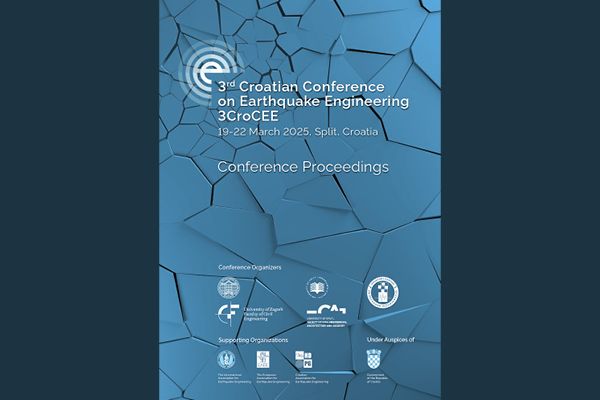Notifications list
Post-earthquake reconstruction in the Zagreb settlements Markuševac and Čučerje
Published: 04.04.2025.

Anđelina Svirčić Gotovac, PhD and Jelena Zlatar Gamberožić, PhD are the authors of the chapter titled Post-earthquake reconstruction in the Zagreb settlements Markuševac and Čučerje. The chapter is a part of the Proceedings of the 3rd Croatian Conference on Earthquake Engineering - 3CroCEE, Split, Croatia.
Abstract: The Zagreb settlements of Markuševec and Čučerje were significantly affected by the 2020 Zagreb earthquake, and over the past four years have been undergoing a process of both technical and socio-demographic renewal. The analysis of post-earthquake renovation in these settlements was carried out by qualitative methodology and semi-structured interviews. They were conducted during the year 2024 (from May to September) on a sample of 20 residents and experts (16 residents and 4 experts in the construction profession). The research focus was on reconstruction models of damaged houses and the program for obtaining replacement houses, as well as the secondary accommodation of residents during the process of renovation. The results showed that the majority of residents went through the process of renovation by owners (self-renovation) and independent involvement in the renovation of their houses. They relied only partially on the help of the City of Zagreb and the Ministry of Physical Planning, Construction and State Assets, both in the administrative and financial sense. A smaller part decided for constructive reconstruction in administrative agreement with the Ministry, primarily those whose houses were demolished. The position of residents, who lived in temporary accommodation and in the so-called container houses or in isolated parts of their property that they reconstructed ad hoc, was particularly difficult. According to the different situations in which the residents found themselves we can conclude that they believe that, regardless of the great investment of the state, they were not adequately and on time returned to their own houses. Their expectations were focused on a permanent return to their own houses and to their property, especially because they are mostly elderly and therefore do not want to move out compared to the younger population.
The chapter is available here.
